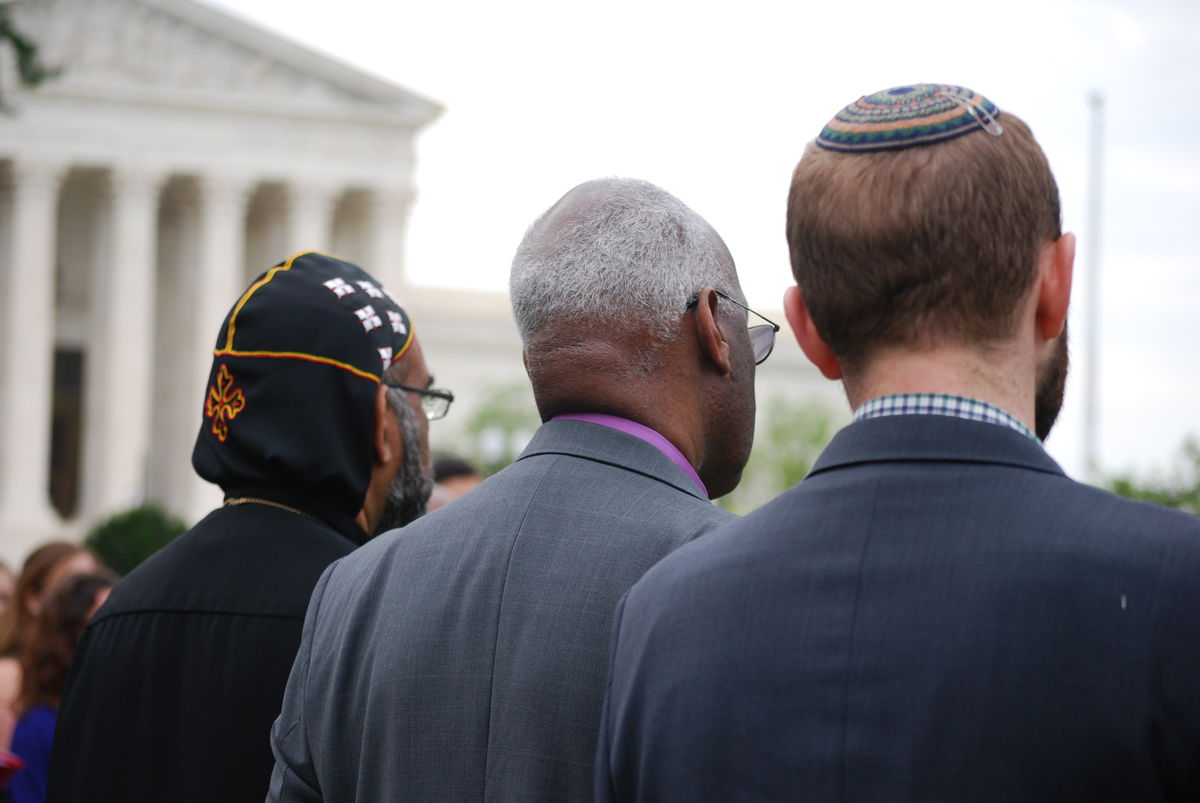Death Penalty
We unequivocally oppose the death penalty and urge its elimination from all criminal codes.

We worship a God who received the death penalty. Jesus was tried, sentenced, and murdered by the state. He died on a cross on a hill between two criminals.
That cross was the symbol of the oppressive power the Roman state. It was the tool the Romans used to keep the population in line. The cross on a hill said, “behave, or you will end up here.”
The death penalty denies the power of Christ to redeem, restore, and transform all human beings.
United Methodist Social Principles, ¶164.GJesus took that cross. He died and was buried. On the third day, he rose from the dead. The empty tomb is a God’s proclamation that love and grace triumph over oppression and death.
Christ’s resurrection is a rejection of all that the cross represented.
State-sanctioned murder still exists today. The cross has become electric chairs and nooses, firing squads and lethal injections.
Contemporary capital punishment is flawed in theory and practice. Racism, classism and other systemic oppressions profoundly shape who receives capital punishment. Additionally, wrongful execution is an inherent risk in capital punishment. In the United States, over 160 people who were wrongly convicted have been exonerated from death row since 1973.
As Christians, we believe in a God who rejected the Cross and rejects capital punishment. We believe in a God who came “that they may have life, and have it abundantly.” (John 10:10)
What the Bible and The United Methodist Church Say:
God desires right relationships and restoration.
Speaking through the prophet Ezekiel, God says, “I take no pleasure in the death of the wicked, but rather that they turn from their ways and live.”
Let anyone among you who is without sin be the first to throw a stone at her.
JesusJesus teaches us to forgive those who have done us wrong. He says, “if you do not forgive others, neither will your Father forgive your trespasses.” (Matthew 6:15) He instructs us to “love your enemies and pray for those who persecute you.” (Matthew 5:44)
When confronted with a crowd about to implement the death penalty, Jesus says, “Let anyone among you who is without sin be the first to throw a stone at her.” (John 8:7)
The United Methodist Church says, “The death penalty denies the power of Christ to redeem, restore, and transform all human beings.” (Social Principles ¶164.G) As Wesleyans, we believe that God’s grace is ever reaching out to restore our relationship with God and with each other. The death penalty denies the possibility of new life and reconciliation.
The United Methodist Church also recognizes the unjust and flawed implementation of the death penalty, pointing out the example of Texas, where executions reveal racism, bias against mentally handicapped persons and the likely execution of at least one innocent person. (Book of Resolutions, 5037)
“We oppose the death penalty (capital punishment) and urge its elimination from all criminal codes.” (Social Principles ¶164.G)
Three Things You Can Do:
- Hold a vigil at the execution facility or state capitol when an execution occurs. Witness to the fact that a person is being killed on behalf of society — on behalf of you — and you resist this action. In your witness, share information on social media using #deathpenalty and connect with local anti-death penalty groups in your context, such as the Texas Coalition to Abolish the Death Penalty.
- Advocate against the death penalty in your state and country. Contact your elected officials to make your voice heard, by letter, in-person visit, phone call, email, Twitter, or other social media. Write to people who are facing the death penalty. Send Christmas cards, seasonal greetings, or letters to those on death row.
- Participate in the Annual Fast and Vigil hosted by the Abolitionist Action Committee each June 29 – July 2 at the United Methodist Building and Supreme Court in Washington, D.C.
Related Resources
For more information on the death penalty, visit:
- Death Penalty Information Center
- United Methodist Book of Resolutions: